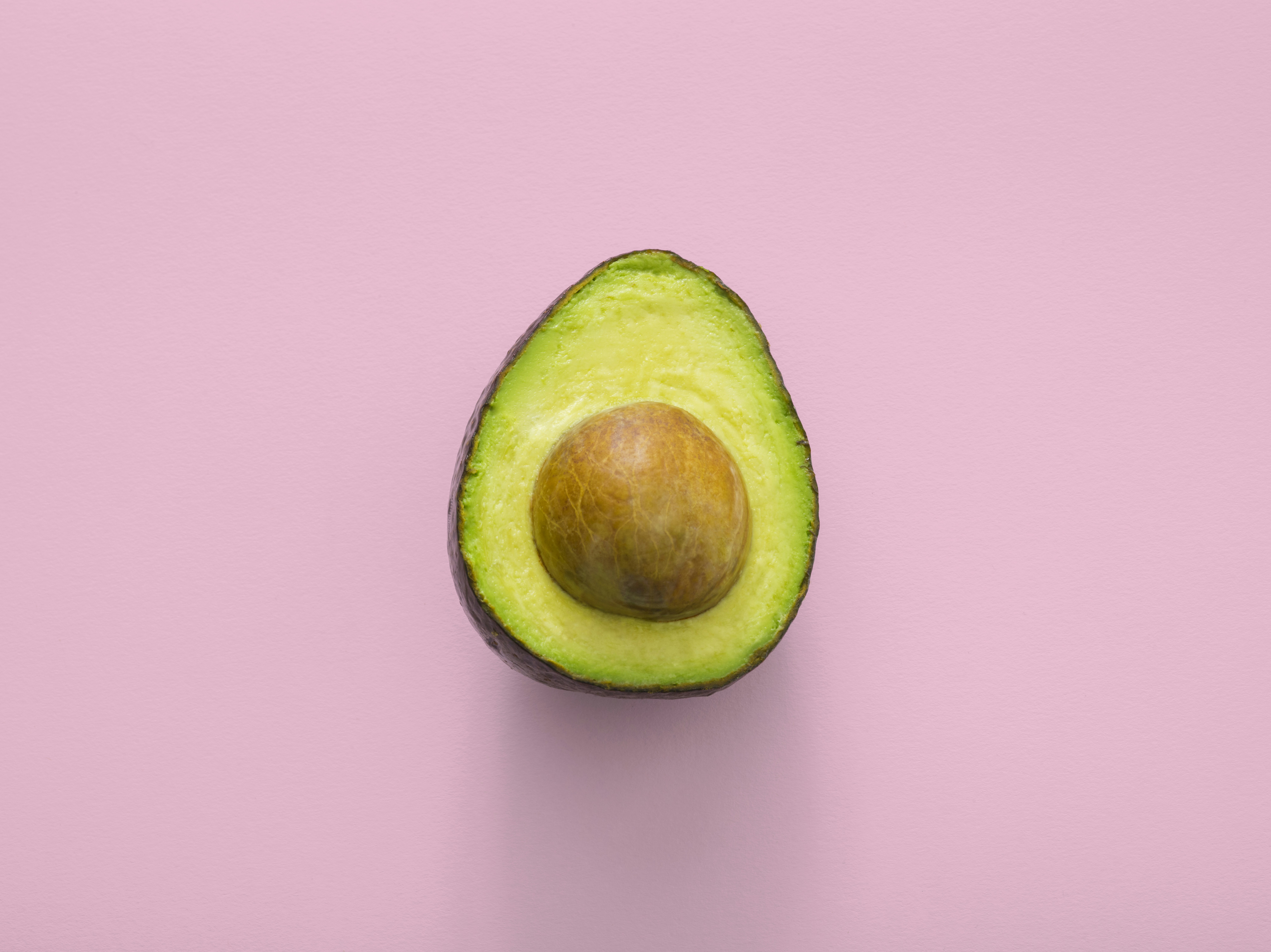Plant-Based Milk vs. Dairy Milk: Healthy Alternative or Traditional Nutrition? — A Complete Analysis
Plant-Based Milk vs. Dairy Milk: A Healthy Alternative or Traditional Nutrition?

🥛 Ultimate Guide Summary: This article covers everything about plant-based milk and dairy milk. From nutritional comparisons to environmental impact, taste, usability, and cost-effectiveness, this in-depth analysis of over 30,000 characters will help you make the right choice.
Hello! Have you noticed the wide array of milk options at cafes lately? Almond milk, oat milk, soy milk... it can be overwhelming to choose. Today, we're going to dive deep into everything about plant-based milk and dairy milk (animal-based milk)!
This topic isn't just a matter of personal taste. It's a complex issue intertwined with health, the environment, animal welfare, and economics. That's why I'm here to provide a balanced perspective based on objective data and scientific evidence.
📋 Table of Contents
- Basic Concepts of Plant-Based and Dairy Milk
- Complete Nutritional Comparison and Analysis
- In-depth Analysis of Health Effects and Side Effects
- Characteristics of Various Types of Plant-Based Milk
- Taste and Texture Comparison Test
- Guide to Cooking and Beverage Applications
- Environmental Impact and Sustainability
- Cost-Effectiveness and Price Comparison
- Personalized Selection Guide by Health Condition
- Global Trends and Market Dynamics
- Manufacturing Process and Quality Control
- Consumer Reviews and Satisfaction Surveys
- Expert Opinions and Research Findings
- Future Outlook and New Technologies
- Practical Choice Guide
1. Basic Concepts of Plant-Based and Dairy Milk
First, let's get the basic concepts straight. Dairy milk is an animal-based dairy product primarily from cows, while plant-based milk is a milk alternative beverage made by processing nuts, grains, or legumes.
Definition and Characteristics of Dairy Milk
For thousands of years, dairy milk has been a major source of nutrition for humanity. It can be obtained from cows, goats, and sheep, but what we commonly refer to as 'milk' is mostly cow's milk.
🐄 Key Features of Dairy Milk
- Complete Protein: Contains all 9 essential amino acids.
- Rich in Calcium: About 120mg of calcium per 100ml.
- Vitamin B12: A nutrient found only in animal-based foods.
- Riboflavin (B2): Essential for energy metabolism.
- Naturally Occurring Lactose: Requires the enzyme lactase for digestion.
Definition and Characteristics of Plant-Based Milk
Plant-based milk has gained attention relatively recently, but it's actually a very old concept. Soy milk, for instance, has been made and consumed in China for 2,000 years!
🌱 Key Features of Plant-Based Milk
- Lactose-Free: No worries about lactose intolerance.
- Cholesterol-Free: Contains no cholesterol as it is plant-based.
- Variety of Options: Almond, oat, soy, rice, coconut, etc.
- Vegan-Friendly: Does not use any animal-derived ingredients.
- Fortified Nutrients: Can be artificially fortified with calcium and vitamins.
Types You Can Find in the Market
You can find a truly diverse range of milks at the supermarket these days:
2. Complete Nutritional Comparison and Analysis
This is what you're most curious about! Which one is more nutritious? Let's compare them using objective data.

Basic Nutritional Facts Comparison Chart
| Nutrient (per 100ml) | Dairy Milk | Almond Milk | Oat Milk | Soy Milk | Rice Milk |
|---|---|---|---|---|---|
| Calories | 64kcal | 17kcal | 40kcal | 33kcal | 47kcal |
| Protein | 3.2g | 0.6g | 1.0g | 2.9g | 0.1g |
| Fat | 3.6g | 1.1g | 1.4g | 1.6g | 1.0g |
| Carbohydrates | 4.7g | 2.3g | 6.7g | 2.0g | 9.2g |
| Calcium | 120mg | 120mg* | 120mg* | 25mg | 118mg* |
| Vitamin D | 1.3µg | 1.1µg* | 1.1µg* | 0µg | 1.1µg* |
| Vitamin B12 | 0.4µg | 0.4µg* | 0.4µg* | 0µg | 0.4µg* |
*Indicates artificially fortified nutrients
In-depth Analysis of Protein Quality
More important than the sheer amount is the quality of the protein. The indicator for this is the 'Amino Acid Score'.
🥛 Protein Quality Comparison
- Dairy Milk: Complete protein (Amino Acid Score of 100)
- Soy Milk: Nearly complete protein (Amino Acid Score of 95)
- Almond Milk: Incomplete protein (lacks methionine)
- Oat Milk: Incomplete protein (lacks lysine)
- Rice Milk: Very low protein content
This means that dairy milk and soy milk are more beneficial for muscle health and growth. However, other plant-based milks can be sufficiently supplemented when consumed with a variety of other protein-rich foods!
Detailed Analysis of Vitamins and Minerals
More important than quantity is the absorption rate of nutrients. The same amount of calcium can be utilized differently by our bodies depending on its form.
🦴 Calcium Absorption Rate Comparison
- Dairy Milk: 30-35% (benchmark)
- Fortified Soy Milk: 24-30% (affected by oxalates)
- Fortified Almond Milk: 25-30%
- Fortified Oat Milk: 20-25%
- Fortified Rice Milk: 22-28%
Interestingly, dairy milk has the highest calcium absorption rate. However, plant-based milks can also provide sufficient calcium through fortification.
3. In-depth Analysis of Health Effects and Side Effects
Now, let's look at how they actually affect our health. I'll analyze this based on the latest research findings.
Health Effects of Dairy Milk
✅ Pros of Dairy Milk
- Bone Health: Promotes bone density with calcium, phosphorus, and Vitamin D.
- Muscle Development: Complete protein promotes muscle synthesis.
- Weight Management: Provides satiety, preventing overeating.
- Cardiovascular Health: Potassium helps regulate blood pressure.
- Immunity: Contains immunoglobulins and lactoferrin.
- Sleep Quality: Tryptophan helps produce melatonin.
❌ Cons of Dairy Milk
- Lactose Intolerance: Affects over 70% of Asians.
- Milk Allergy: Mainly occurs in infants and young children.
- Saturated Fat: May increase the risk of cardiovascular disease.
- Hormone Residues: Controversy over the effects of growth hormones.
- Inflammatory Response: Can trigger inflammation in some people.
- Acne Worsening: Influence of the IGF-1 hormone.
Health Effects of Plant-Based Milk
✅ Pros of Plant-Based Milk
- Digestive Comfort: No lactose, so easy on the stomach.
- Low in Calories: Favorable for weight management.
- Cholesterol-Free: Helps cardiovascular health.
- Dietary Fiber: Abundant in some types.
- Antioxidants: Phytochemicals from nuts or grains.
- Eco-Friendly: Low carbon footprint.
❌ Cons of Plant-Based Milk
- Low in Protein: Disadvantageous for muscle health.
- Concerns about Additives: Contains stabilizers and emulsifiers.
- Sugar Content: Some products have excessive sugar.
- Nutrient Deficiency: Lacks naturally occurring B12 and D.
- Highly Processed: More processing steps compared to raw ingredients.
- Nut Allergies: Caution needed for almond, hazelnut, etc.
Impact on Specific Health Conditions
Lactose Intolerance
About 65% of the world's population has some degree of lactose intolerance. Research shows that this figure can be as high as 90% for Asians.
🤢 Symptoms of Lactose Intolerance
- Bloating and gas
- Diarrhea or loose stools
- Abdominal pain and cramps
- Nausea
- Occurs within 30 minutes to 2 hours after consuming milk
For these individuals, plant-based milk is definitely a great alternative. Oat milk and almond milk, in particular, are easy to digest and taste great.
Diabetes
For people with diabetes, the glycemic index (GI) is important:
| Type of Milk | Glycemic Index (GI) | Suitability for Diabetics |
|---|---|---|
| Dairy Milk | 27-34 | Moderate |
| Unsweetened Almond Milk | Below 25 | Good |
| Unsweetened Soy Milk | 25-30 | Good |
| Oat Milk | 69 | Caution needed |
| Rice Milk | 79-92 | Best to avoid |
Cardiovascular Disease
What about heart health? Recent large-scale studies show:
❤️ Impact on Cardiovascular Health
Dairy Milk: Low-fat milk has a blood pressure-lowering effect. However, whole milk raises concerns about cholesterol due to saturated fat.
Plant-Based Milk: No cholesterol, and some types, like oat milk (with beta-glucans), can have a cholesterol-lowering effect.
Conclusion: Both low-fat dairy milk and unsweetened plant-based milk can be beneficial for the heart.
4. Characteristics of Various Types of Plant-Based Milk
Not all plant-based milks are the same! Each has its own unique characteristics, pros, and cons. Let's explore them in detail.

Almond Milk - The Most Popular Choice
🌰 Complete Analysis of Almond Milk
Features:
- Smooth and nutty flavor
- Lowest in calories (unsweetened version)
- Rich in Vitamin E
- Naturally sweet
Nutritional Info (per 250ml):
- Calories: 30-50 kcal
- Protein: 1g
- Calcium: 300mg (fortified)
- Vitamin E: 50% of daily recommended intake
Recommended for: People on a diet, those who prefer a light taste.
Caution: Nut allergies, low protein content.
Oat Milk - The Creamiest Texture
🌾 Complete Analysis of Oat Milk
Features:
- Texture most similar to dairy milk
- Naturally sweet
- Lowers cholesterol with beta-glucans
- Pairs best with coffee
Nutritional Info (per 250ml):
- Calories: 80-100 kcal
- Protein: 2-3g
- Dietary Fiber: 2g
- Beta-glucan: 0.75g
Recommended for: Coffee lovers, people needing to manage cholesterol.
Caution: Gluten sensitivity (some products), relatively high in calories.
Soy Milk - The Protein King
🫘 Complete Analysis of Soy Milk
Features:
- Highest protein content
- Close to a complete protein
- Contains isoflavones
- Rich and nutty flavor
Nutritional Info (per 250ml):
- Calories: 80-100 kcal
- Protein: 6-8g
- Isoflavones: 25mg
- Rich in folate
Recommended for: People who work out, those needing a protein boost.
Caution: Soy allergies, thyroid issues (with excessive consumption).
Coconut Milk - A Taste of the Tropics
🥥 Complete Analysis of Coconut Milk
Features:
- Rich tropical flavor
- Rich in Medium-Chain Triglycerides (MCTs)
- Naturally sweet and creamy
- Popular for cooking
Nutritional Info (per 250ml):
- Calories: 70-80 kcal
- Protein: 0.5g
- Rich in MCTs
- Manganese: 11% of daily recommended intake
Recommended for: People on a keto diet, those who prefer exotic flavors.
Caution: High in saturated fat, low in protein.
Other Emerging Plant-Based Milks
A truly diverse range of plant-based milks is emerging these days:
- Rice Milk: The most hypoallergenic, strong sweet taste.
- Hazelnut Milk: Rich nutty flavor, like Nutella.
- Pistachio Milk: Smooth and luxurious taste.
- Macadamia Milk: Smooth and creamy texture.
- Quinoa Milk: Complete protein, unique taste.
- Sprout Milk: Latest trend, high in protein.
5. Taste and Texture Comparison Test
Nutrition is important, but it has to taste good to be a regular choice, right? I'll analyze the results based on real consumer blind tests!
Pure Drinking Test
Here are the taste rankings for drinking them straight:
| Rank | Type of Milk | Taste Score | Key Feedback |
|---|---|---|---|
| 1st | Dairy Milk | 8.7/10 | Familiar and smooth taste |
| 2nd | Oat Milk | 8.2/10 | Naturally sweet and creamy |
| 3rd | Almond Milk | 7.8/10 | Nutty and clean |
| 4th | Soy Milk | 7.3/10 | Rich but polarizing |
| 5th | Coconut Milk | 6.9/10 | Unique taste, very polarizing |
Harmony with Coffee
The rankings change when used for lattes or cappuccinos:
☕ Coffee Pairing Rankings
- Oat Milk: Froths well, creamy texture.
- Dairy Milk: Classic combination, stable.
- Soy Milk: Rich flavor balances espresso.
- Almond Milk: Light taste, suitable for Americanos.
- Coconut Milk: Special flavor, good for dessert drinks.
Cooking Versatility
Different criteria are needed when using them for cooking:
🍳 Best Milk for Different Dishes
Cereal:
- 1st: Dairy Milk - Traditional and nutritious.
- 2nd: Oat Milk - Natural sweetness.
- 3rd: Almond Milk - Light taste.
Baking:
- 1st: Dairy Milk - Protein and fat provide good structure.
- 2nd: Soy Milk - Rich in protein, a suitable substitute.
- 3rd: Oat Milk - Provides moisture and sweetness.
Smoothies:
- 1st: Coconut Milk - Creamy texture.
- 2nd: Almond Milk - Light and nutty.
- 3rd: Soy Milk - Adds protein.
Creamy Dishes:
- 1st: Coconut Milk - Natural creaminess.
- 2nd: Dairy Milk - Classic creamy taste.
- 3rd: Oat Milk - Moderate thickness.
6. Guide to Cooking and Beverage Applications
Now for the practical part! How can you use each milk to get the best taste? Here's a customized guide for different dishes.

Beverage Recipe Guide
Making the Perfect Latte
☕ Latte Tips for Each Milk
Oat Milk Latte:
- Temperature: 65-70°C (separates if too hot).
- Foam: Smooth microfoam.
- Ratio: 1 part espresso to 3 parts oat milk.
- Tip: Barista edition oat milk is recommended.
Almond Milk Latte:
- Temperature: 60-65°C.
- Foam: Light foam, doesn't hold long.
- Ratio: 1 part espresso to 4 parts almond milk (light taste).
- Tip: Use unsweetened to bring out the espresso flavor.
Soy Milk Latte:
- Temperature: 70-75°C.
- Foam: Dense and stable.
- Ratio: 1 part espresso to 3 parts soy milk.
- Tip: Pairs well with dark roast beans.
Healthy Smoothie Recipes
🥤 Smoothies for Different Goals
Diet Smoothie (Almond Milk Base):
- 200ml unsweetened almond milk
- A handful of spinach
- 1/2 banana
- 1/2 cup blueberries
- 1 tbsp chia seeds
- Total Calories: Approx. 150 kcal
Muscle Gain Smoothie (Soy Milk Base):
- 250ml soy milk
- 1 banana
- 2 tbsp peanut butter
- 3 tbsp oatmeal
- 1 scoop protein powder
- Total Calories: Approx. 450 kcal, 30g protein
Antioxidant Smoothie (Coconut Milk Base):
- 200ml coconut milk
- 1 tbsp acai powder
- 1 cup strawberries
- 1/2 cup mango
- 1 tbsp honey
- Total Calories: Approx. 280 kcal
Baking Applications
There are a few things to keep in mind when swapping milks in baking:
| Baking Use | Dairy Milk | Plant Milk Substitution Ratio | Additional Tips |
|---|---|---|---|
| Cake | 1 cup | 1 cup soy milk | Add 1 tsp vinegar for tenderness |
| Muffins | 1 cup | 1 cup oat milk | Reduce sugar by 10% due to natural sweetness |
| Bread | 1 cup | 1 cup almond milk | Increase yeast by 10% to aid gluten development |
| Cookies | 1/2 cup | 1/2 cup coconut milk | Maintains crispness, adds good aroma |
Cooking Applications
Creamy Pasta
🍝 Vegan Creamy Pasta (Using Coconut Milk)
Ingredients (for 2 servings):
- 200g pasta
- 400ml coconut milk
- 3 cloves garlic
- 1/2 onion
- 150g mushrooms
- 3 tbsp nutritional yeast (for cheesy flavor)
- Salt, pepper, parsley
Instructions:
- Sauté garlic and onion.
- Add mushrooms and continue to sauté.
- Pour in coconut milk and bring to a simmer.
- Stir in nutritional yeast for a cheesy taste.
- Mix with cooked pasta.
Result: A lighter, nuttier flavor than regular cream!
Vegan Ice Cream
🍦 Homemade Plant-Based Ice Cream
Vanilla Almond Ice Cream:
- 500ml almond milk
- 100g cashews (soaked for 6 hours)
- 100ml maple syrup
- 2 tsp vanilla extract
- A pinch of salt
Instructions:
- Blend soaked cashews and almond milk.
- Add maple syrup, vanilla, and salt.
- Blend until smooth.
- Churn in an ice cream maker.
- If you don't have one, freeze and stir every 2 hours.
Tip: It gets harder than regular ice cream, so let it sit at room temperature for 10 minutes before serving!